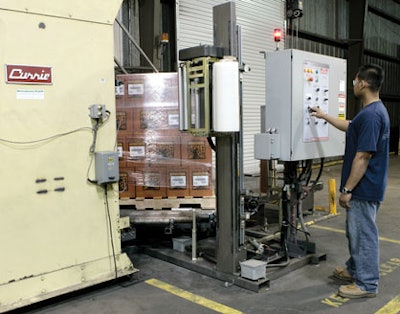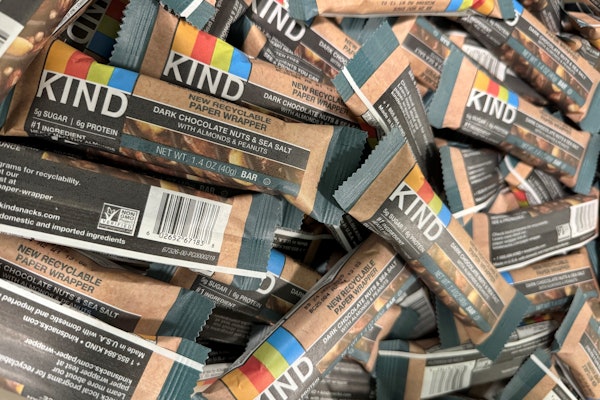
With more than 80 years of winemaking experience, Delicato Family Vineyards produces more than 2.5 million cases of wine annually and exports bulk wine to other wineries. To keep up with demand, the company’s dual high-speed filling lines generate up to 200 pallets of glass bottles per day.
Until recently, Delicato used lift trucks to take pallets of filled wine cases from the palletizers at the end of its filling lines to semi-automatic stretch wrappers that secured the loads. The lift truck driver moved each pallet from the palletizer to the wrapper’s turntable, and then stepped down from the vehicle to start the wrap. Afterward, he remounted the lift truck, moved the wrapped pallet to the winery’s warehouse, and returned to repeat the process for the next load. Two drivers handled the output from the two lines. In addition to being time-consuming and labor-intensive, the procedure presented a safety hazard: Drivers were at risk of injury each time they got down from the lift truck.
While the pallet handling process did not affect the filling lines’ productivity, keeping up with the lines was a challenge. “We were double-handling each load,” says Delicato Bottling Manager Ron Vrieling, “and we needed a way to eliminate that wasted effort and the lost time and labor cost associated with it.”
Corking bottlenecks
Vrieling worked with Rob Shoemaker, director of the Western Region of Orion Packaging Systems (www.orionpackaging.com), a division of Pro Mach Inc., to install an automatic stretch wrapper that would streamline operations and eliminate bottlenecks. The FA-66 is an automatic turntable-style stretch wrapping system designed to be integrated into an end-of-line operation. The stretch wrapper handles pallets up to 48 x 48 in. and automatically adjusts to load heights of up to 72 in. It can wrap loads of up to 4,000 lbs. at speeds of up to 12 rpm, which accommodates Delicato’s present output of between 75 to 100 pallets per day on each line and allows for future growth.
























